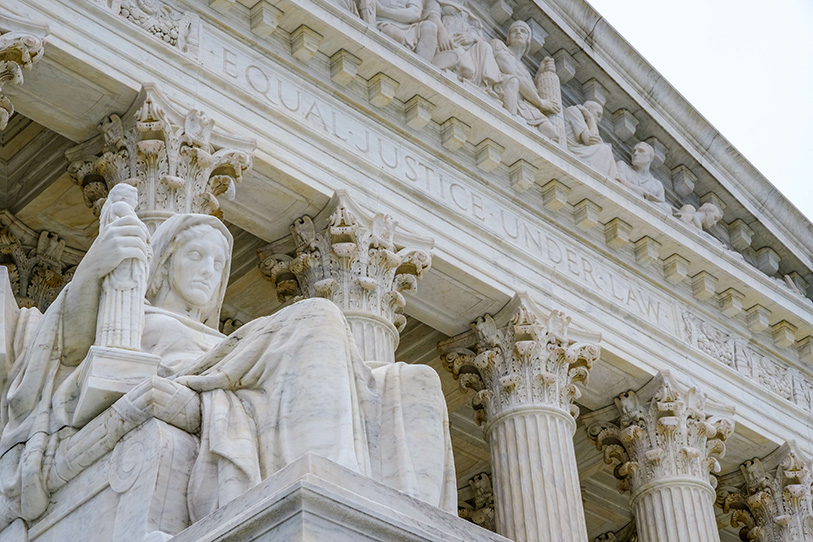On June 23, 2023, in a 5-4 decision authored by Justice Kavanaugh, the U.S. Supreme Court ruled that the Federal Arbitration Act (FAA) requires district courts to automatically stay litigation proceedings while parties appeal whether the claim should be removed to arbitration (Coinbase v. Bielski, No. 22-105 (June 23, 2023)).
Abraham Bielski brought a class action lawsuit in federal court against Coinbase, an online cryptocurrency exchange platform, alleging that Coinbase failed to replace funds fraudulently taken from users’ accounts. When a user signs up for Coinbase, they agree to terms and conditions that include an arbitration dispute resolution provision.
In response to the class action lawsuit, Coinbase moved to arbitrate the claims under the arbitration dispute provision. The district court denied the motion, keeping the litigation in the courts. Coinbase asked to stay the litigation while it appealed the denial of its motion to arbitrate — but the district court declined as did the Ninth Circuit Court of Appeals.
The question before the U.S. Supreme Court was whether Section 16(a) of the FAA, which allows for a provisional appeal of rulings on the arbitrability of the case, required stays of litigation while the appellate court answers the question of arbitrability. Section 16(a) neither authorizes nor prohibits automatic stays pending this type of appeal. Other circuits have held this exact type of appeal would stay the litigation, but the Ninth Circuit created a circuit split that the U.S. Supreme Court now resolves.
The U.S. Supreme Court ruled that the FAA does because Congress enacted Section 16(a) knowing that, based on the 1982 U.S. Supreme Court’s ruling in Griggs v. Provident Consumer Discount Co., the federal courts hold that a provisional appeal “divests the district court of its control over those aspects of the case involved in the appeal.” In other words, Congress knew that the courts would stay litigation during a provisional appeal over arbitration, and, if they did not want to have the litigation automatically stayed, they would have written that into Section 16(a).
Applying the Griggs principle to this case, the appeal will determine whether the case should even stay with the district court, and thus the entire case is on appeal and cannot proceed.
The Court found that none of Bielski’s arguments were compelling to overcome the Griggs principle. First, Bielski makes the argument that this would encourage frivolous appeals to delay litigation, which the Court admonishes him for failing to establish that this occurs in other circuits that automatically stay proceedings in this context. Bielski also fails to argue that Coinbase’s appeal is frivolous, as the Court points to several procedural tools that appellate courts have to quickly handle frivolous appeals.
Then, Bielski attempts to make a statutory interpretation argument — since other FAA sections and its regulations have mandatory stay provisions, Congress would’ve written a mandatory stay provision into Section 16(a). The Court found the sections Bielski cited irrelevant to the appeal of whether a case should be arbitrated and thus irrelevant to this appeal.
Finally, Bielski makes some other public policy arguments against requiring a stay because it would create a special arbitration-favoring procedural rule or is otherwise unnecessary because the district court can still use discretion to stay the proceedings. The Court found both of these arguments actually impair the rights afforded under the FAA and declined to follow Bielski’s arguments.
For employers, this continuation of judicial decisions protects and advances arbitration following a prior Ninth Circuit ruling that allows employers to continue using mandatory arbitration agreements. As noted by the courts, using arbitration over the court system for dispute resolution has advantages, such as efficiency and reduced costs associated with resolving the dispute. Employers who wish to take advantage of the favorable arbitration environment should consult with legal counsel to discuss the process.
Matthew J. Roberts, Labor Law Helpline Manager, Employment Law Counsel/Subject Matter Expert
CalChamber members can read more about “Arbitration Agreements” in Offering Employment in the HR Library. Not a member? Learn more about how HRCalifornia can help you.
